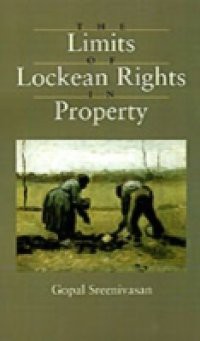This book discusses Locke's theory of property from both a critical and an interpretative standpoint. The author first develops a comprehensive interpretation of Locke's argument for the legitimacy of private property, and then examines the extent to which the argument is really serviceable in defense of that institution. He contends that a purified version of Locke's argument--one that adheres consistently to the logic of Locke's text while excluding considerations extraneous to his logic--actually does establish the legitimacy of a form of private property. This version, which is both defensible in contemporary, secular terms and is, essentially, egalitarian, should provoke a reassessment of the nature of Locke's relevance to contemporary discussions of distributive justice.

